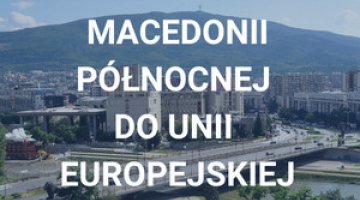North Macedonia decides to hold a snap parliamentary election
Following negotiations with leaders of parliamentary groupings and President Stevo Pendarovski, Zoran Zaev, the prime minister of North Macedonia, announced on 20 October that a compromise on scheduling a snap parliamentary election had been reached. The election will be held on 12 April 2020. Zaev announced that he would step down on 3 January and relinquish power to the interim technical government for three months; this will most likely be led by Oliver Spasovski, the incumbent Minister of Internal Affairs. The snap election was announced after the attempts to launch accession negotiations with the European Union had proven unsuccessful. Due to France’s objection, the EU for the third time decided not to open accession negotiations with North Macedonia and Albania even though the two countries had met all the requirements, and the European Commission and the European Parliament had presented positive recommendations to this effect to the Council of the European Union.
Commentary
- Prime Minister Zaev was building his political position on the promise to launch accession negotiations with the EU and gaining NATO membership. To achieve this, he reached a compromise in June 2018 with Greece, which had been blocking Macedonia’s integration process with the EU and NATO since 2008. Amongst other issues, it envisaged changing the constitutional name of the country, which is still a source of numerous controversies among the Macedonian public. Although 94.2% of the people who took part in the national referendum backed the deal with Greece, the turnout was as low as 36.8%. The government was arguing that the concessions regarding the country’s name guaranteed opening accession talks with the EU.
- The snap election has been scheduled due to political calculations. The governing Social Democratic Union of Macedonia (SDSM) hopes to maintain a consolidated electorate by April. It also hopes that the opposition VMRO-DPMNE will not be able to rebuild its position to a degree that will pose the risk of SDSM losing the election. Zaev wants to present himself as a responsible politician who is ready to face the voters’ verdict when his promises cannot be fulfilled and to renew the cabinet’s political mandate. At the same time, scheduling the election and the option that the VMRO-DPMNE might regain power is an element of pressure on EU countries to prepare a concrete proposal for North Macedonia’s integration with the EU by spring 2020 which the government can present to the public as proof of its effectiveness. However, regardless of the position the EU takes, an election in December 2020, i.e. at the time envisaged by the constitution, could be more risky to Zaev. The government would be faced with constant attacks from the opposition due to its failure to fulfil the promise to open the negotiations, and it would not be possible to conduct thorough reforms affecting the interests of numerous groups of influence.
- To improve his chance for re-election, Zaev would like to end the process of North Macedonia’s NATO accession before the election. This is expected to take place in December this year (seven out of 29 NATO member states still have not ended the ratification process). Then the protocol must be ratified by the parliament of North Macedonia. The United States wants this country to join NATO as soon as possible, so no major delays should be expected. Even though NATO membership is not so important to the Macedonian public as integration with the EU, the government will present it as one of its major successes and an important stage on the way to the EU.
- The snap election has also been scheduled for rather a distant term due to the agreement reached in 2015 as part of which Macedonian political groupings undertook to relinquish power to a technical cabinet formed by all political forces represented in parliament for 100 days preceding the election. This is expected to prevent state institutions being used in an election campaign and to improve the transparency of the process of holding elections. Even though this agreement is not legally binding, it was signed under the auspices of the EU, and all parties to the agreement undertook to comply with it.
- Zaev took the position of prime minister in 2017 after a decade-long rule of the right-wing VMRO-DPMNE party (2006–2017), which had been characterised by efforts to build an autocratic system controlled by Prime Minister Nikola Gruevski, which led to the isolation of North Macedonia on the international arena. The memory of numerous irregularities linked to the previous governments is a serious burden for the VMRO-DPMNE, and it has not brought the politicians responsible for them to account. Officially, the VMRO-DPMNE supports European integration, but it is questioning the deal with Greece which was meant to open the way to NATO and EU membership for North Macedonia. The opposition will most likely resume its nationalist rhetoric, which will escalate social polarisation both among ethnic Macedonians and between the Macedonian majority and the Albanian minority which forms around 25% of the country’s population. Therefore, an extremely turbulent election campaign may be expected.


